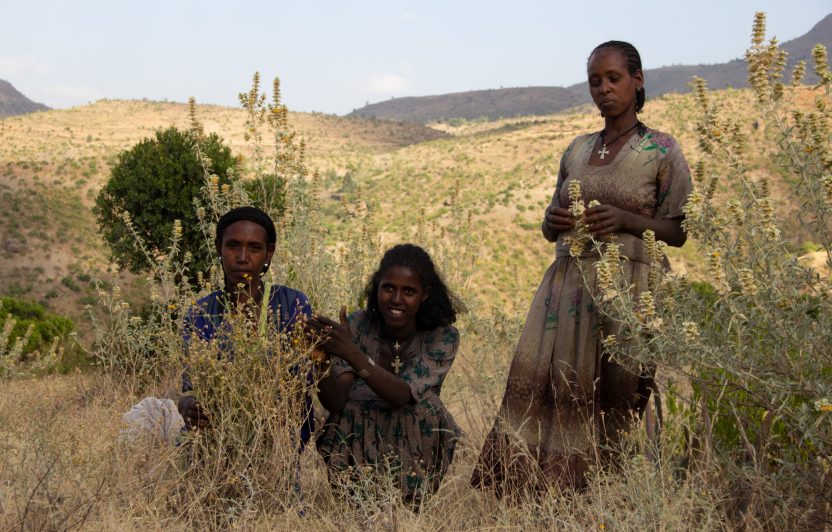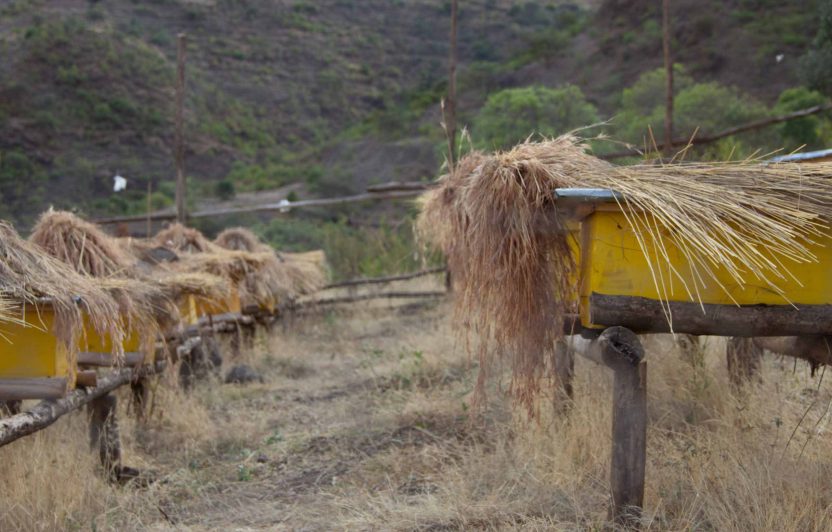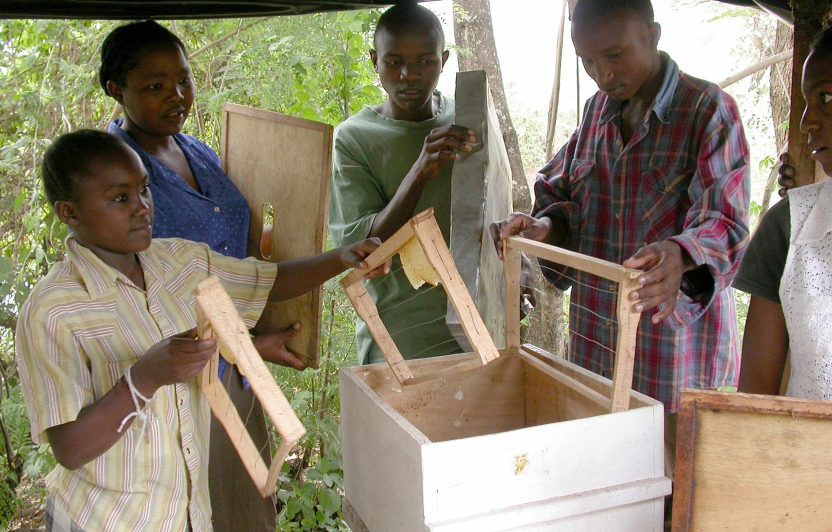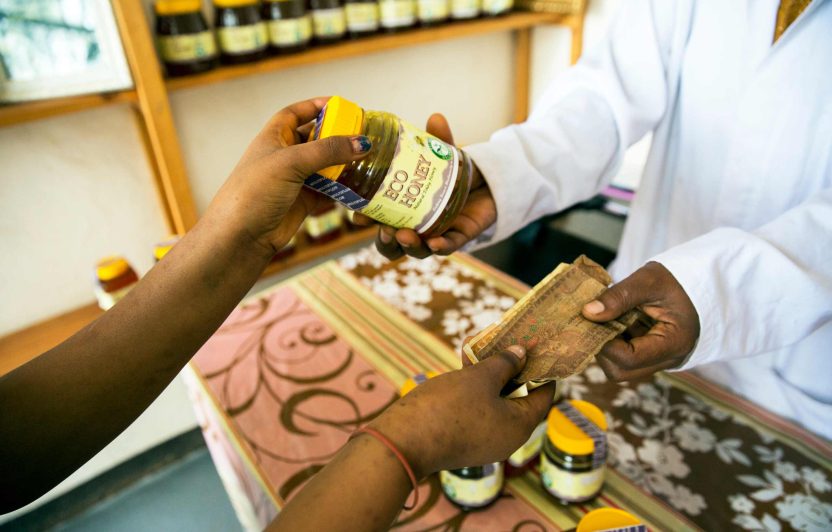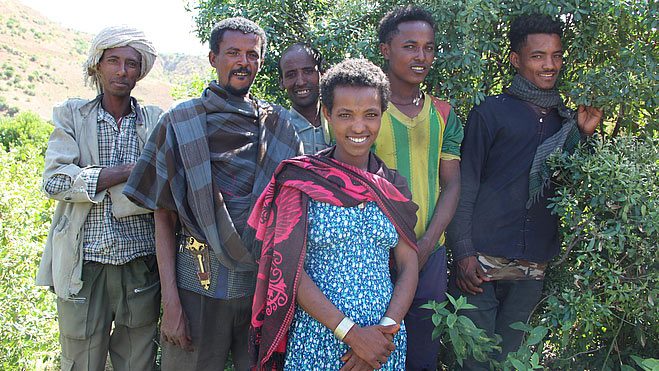
When Biovision develops new projects, the equal participation of women is an essential element. However, what about the reality, e.g. in the bee project in Wag Himra area of Ethiopia, a community project started by Biovision and its partner icipe in 2018? As part of the project, local agricultural advisers and icipe bee experts encourage female participation but those advisers and experts are all male. Even though there has been gender parity in the Ethiopian cabinet since 2018, at the local level in Dehana District we have so far only managed to recruit male instructors. Young people living in the area covered by the project lack female role models, making the participation of both women and men even more important.
This may be one of the reasons why we were not immediately able to allocate 50 % of places on the courses in beekeeping and entrepreneurship to women, even though the preparatory work by the project management team paid particular attention to encouraging women.
Setting the direction of travel
It is sometimes a long haul from strategy to actual implementation, i.e. to achieve an increase in the female participation rate and to maintain that increase. From earlier projects, the icipe project coordinator Dr Workneh Ayalew and his colleagues are aware that certain requirements for participation represent insurmountable hurdles for women and girls. If participants are required to read and write proficiently, that already excludes most women living in rural Ethiopia. For that reason, the only conditions placed on those seeking to join one of the small companies established under the Biovision bee project are that the young adults have no land, no job and live in one of the selected water catchment areas.
Overcoming barriers
In the new bee project, women face other barriers that make it difficult for them to join the labour market. “Women have to cope with challenges that are often invisible”, says Dr Workneh Ayalew explaining the fact that the local administration of the working group is solely in the hands of men. “Women are expected to look after the children and their husbands and are often at the bottom of the queue when it comes to participation in training courses”. He suggests that one possible solution would be to try and set up a group consisting solely of women. Although this would be contrary to the project’s philosophy, which seeks to encourage cooperation between genders and generations, this radical approach might, under certain circumstances, serve to eliminate some barriers.
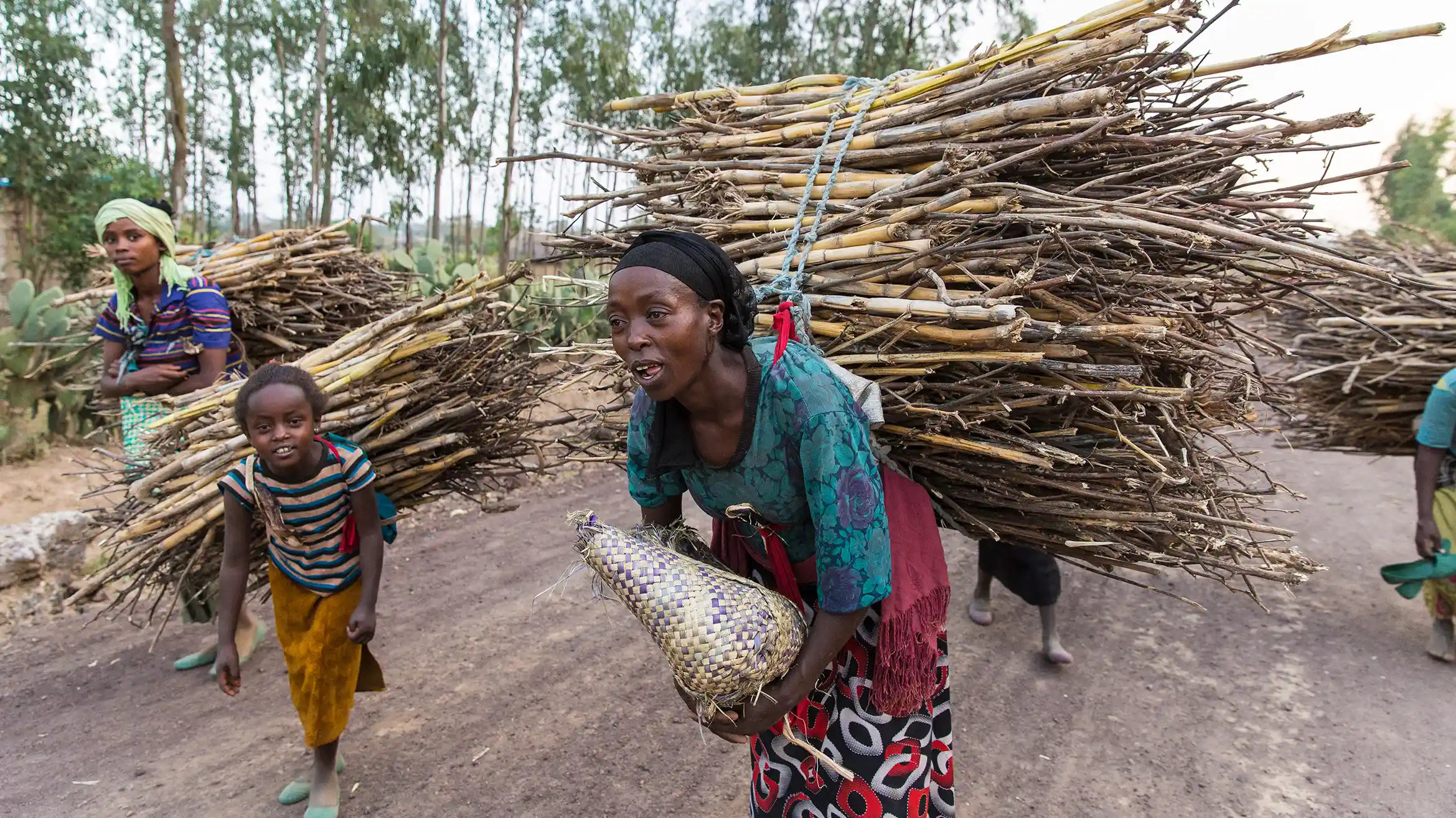
Motivating stories
Many problems still remain. For example, several women had to leave their beekeeping group when they married and moved to a distant village. Others lacked the required financial resources because they were unable to take out a micro-loan in their own name or because their husbands refused to sign the joint contract – a condition of participating in the project. As a result, the business management courses for the young adults include bookkeeping principles and stories about human ingenuity and perseverance in the business world. The group “Azmeraw Debasaw & Friends Enterprise” has used what they learned to good effect. Economically, it is the most successful company in the bee project and the only one in the hands of women. Four of the five founding members were women between 20 and 30 years of age and three of them already had children. They are earning an additional income from the sale of grain and vegetables and the proceeds are then re-invested. Beekeeping and honey sales, although promoted in the project, are only likely to become their main source of income in the medium term.
Progress for both men and women
Without the support of their husbands, the situation even for these four women would have been difficult. For example, the men do the night shift and keep watch on the hives. For Ethiopian women, this would have been an absolute impossibility. The women who work continue to do the housework and prepare meals for the entire day before setting out each morning for the hives and vegetable fields. They have no choice but to combine their professional and domestic work. However, more and more women are prepared to do that so that they can pursue a career and improve things for themselves and their families.
Role models sought
At present, women account for 34 % of those actively participating in the project for young entrepreneurs in Dehana. Based on predictions for 2019, this percentage is likely to increase to 42 %. It would appear that efforts by both icipe und Biovision to bring more women on board is slowly starting to bear fruit. Hopefully, the willingness of these pioneers to display their commitment in public will encourage other women and young girls.


